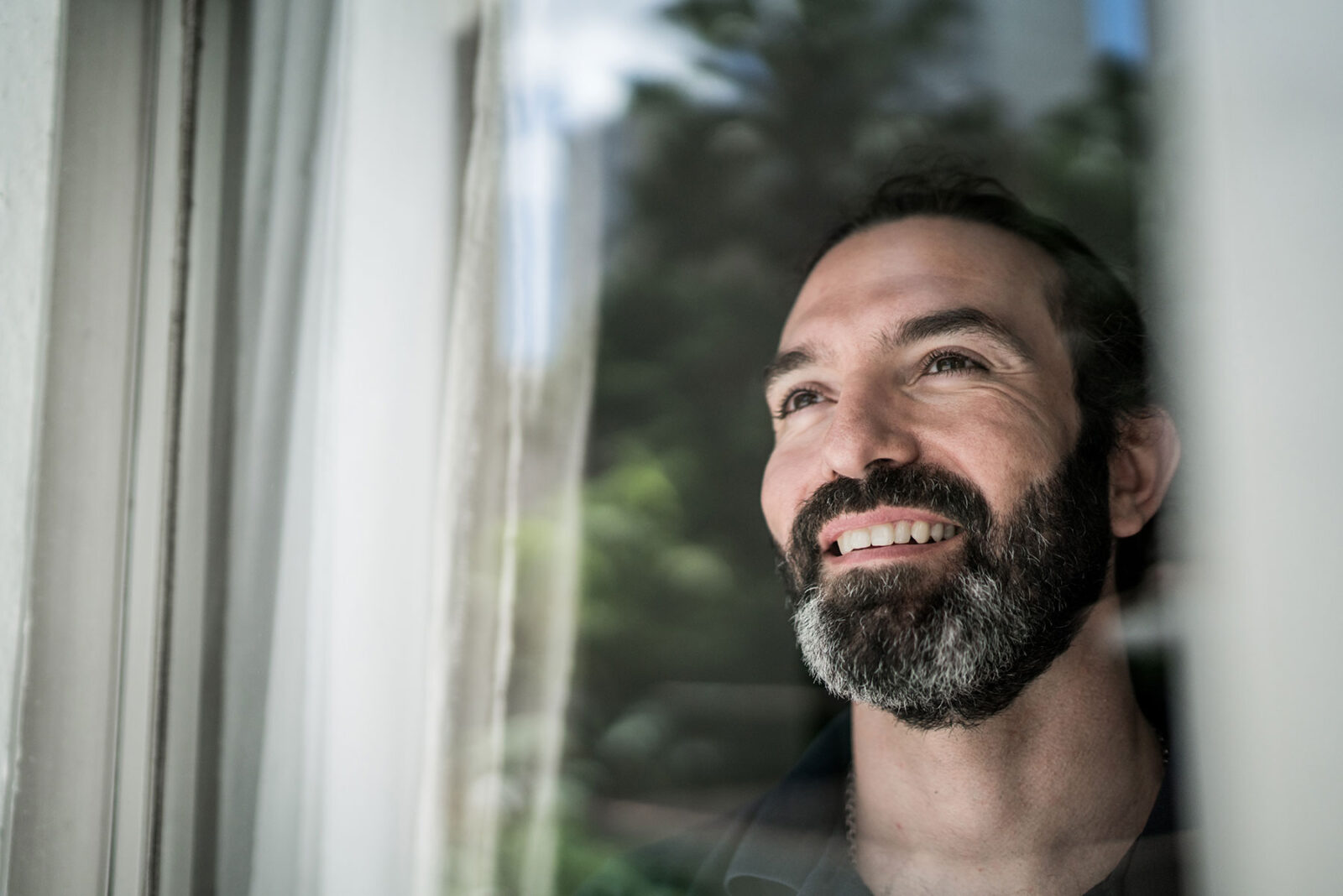In this resource, we identify practical coping mechanisms to help you deal with feelings of anxiety.
-
Feeling Anxious
Anxiety is a common mental health condition, but it affects everyone differently. Some people experience symptoms of anxiety more often, while others may only feel anxious before big events.
Regardless, it’s important to have effective coping strategies.
Knowing how to manage your anxiety symptoms when they occur will help you feel more in control of your thoughts and feelings during vulnerable situations.
Here are several practical strategies you can use to cope with anxiety when it creeps into your daily life.
-
Journaling
Journaling, the process of writing about your thoughts and feelings in a notebook, is a common coping mechanism for anxiety. There are no rules about what you should or shouldn’t write, how long you should write for or how many journals you should have.
You’re free to make your own rules; what’s important in the journaling process is to express your feelings openly and honestly. You can write, draw, doodle – whatever works best for you.
There are many reasons why people with anxiety turn to journaling. The routine of journaling can increase feelings of wellbeing and reduce depressive episodes.
In one 2018 American study[1] of 70 adults with anxiety, Pennsylvania State University researchers found that journaling was associated with decreased mental distress and increased wellbeing. Journaling was also associated with less depressive symptoms and anxiety after one month, and greater resilience after the first and second month.
Keeping a journal can help you gather your thoughts and stop obsessively worrying about events or matters in life. Journaling can also help you feel more aware of your thoughts, feelings and emotions. The simple act of handwriting in a quiet place can be calming and soothing.
If you’re new to journaling, start by putting pen to paper for just a few minutes every day. To make journaling a habit, try writing at the same time every day, when you can write uninterrupted, so you can truly focus and relax. If you’re experiencing anxious thoughts, having a journal in your bag or at your desk may help you feel calmer and cope in the moment, too.
-
Breathing exercises
When you’re feeling anxious, it’s normal to breathe quickly and take shallow breaths. Breathing exercises allow you to focus on your breathwork and help you slow down and take deep breaths. Slow, deep breathing can help you to relax and feel less anxious.
You can do breathing exercises when you’re feeling anxious before a stressful event, when you’re worried about an upcoming situation, or you can make it part of your daily routine. To get started, make sure you have limited distractions around so you can completely focus on your breathwork.
Sit or lie comfortably, focusing on your breath. Take a normal breath, then breathe in slowly and deeply through your nose. Allow your chest and stomach to rise as your lungs fill with air. Count to three as you breathe in, then breathe out slowly through your mouth.
Check out our article on breathing exercises for more tips.
-
Keeping active
Exercise benefits your mind and body, and there are so many reasons to keep active and live a healthy lifestyle. Exercise can improve your strength and fitness and reduce stress and anxiety[1]. Moving your body, spending time with friends and having fun can enhance your wellbeing and general satisfaction in life.
Finding an activity that you enjoy and doing it several times a week can help you feel happier, more content and less anxious in general.
Remember that exercise doesn’t have to be boring or painful. There are many different options available, so think about what types of movements appeal to you. Dancing, running, paddle boarding, walking, football, basketball, cycling, hiking, Pilates, gymnastics and aerobics classes are all different options to try.
Aim to incorporate movement into your routine most days. NSW Government’s Get Healthy program recommends at least 30 minutes of moderate-intensity physical activity most days of the week to maintain a healthy lifestyle.
Finding people to exercise with makes the process more enjoyable. Join group classes or a local sports team, work out with friends or ask friends to accompany you on walks or bike rides.
Importantly, make sure you are committing to an activity that you enjoy as it will help you to relax and better cope with your anxious feelings.
If you’re new to exercise, it may take a few months for you to feel better or notice benefits. Consistency is key, so make sure you stick to your plan and spread your exercise evenly throughout the week.
And, of course, general healthy lifestyle tips go hand in hand with exercise. The essentials of healthy living include to:
- Eat well – include fresh, unprocessed foods like fruits, vegetables and whole grains
- Get enough sleep – aim for around seven to eight hours daily, going to bed at a similar time every evening
- Drink water – around two litres a day, avoiding sugary drinks where possible
- Reduce alcohol and caffeine – stick to the daily recommended limits of alcohol and caffeine, as too much of both can exacerbate feelings of anxiety[2][3].
-
Where to get help for anxiety
If your anxiety is becoming difficult to manage and is affecting your day-to-day life, it’s time to see a health professional. Reach out to your GP who can help you with a mental health assessment and treatment plan.
You can also call Mind Health and speak to one of our counsellors on 1300 029 131. You may also benefit from joining a support group. Spending time with other people who also experience anxiety can help you cope and feel less isolated.
Remember that plenty of people feel anxious, and you aren’t alone. Having several go-to coping strategies makes it possible to manage your symptoms and live a happy, fulfilled life.
If it is an emergency, please call 000.
References
[1] Smyth JM, Johnson JA, Auer BJ, Lehman E, Talamo G, Sciamanna CN. Online Positive Affect Journaling in the Improvement of Mental Distress and Well-Being in General Medical Patients With Elevated Anxiety Symptoms: A Preliminary Randomized Controlled Trial. JMIR Ment Health. 2018;5(4):e11290. Published 2018 Dec 10. doi:10.2196/11290
[2] NSW Health Active & Healthy https://www.activeandhealthy.nsw.gov.au/active-living/benefits-of-being-physically-active/
[3] Alcohol Think Again https://alcoholthinkagain.com.au/alcohol-your-health/alcohol-and-mental-health/
[4] Health Direct https://www.healthdirect.gov.au/caffeine
MindHealth is a free professional counselling service operating between 7am and 9pm Monday to Saturday for people 15 years and older living or working in the Hunter New England and Central Coast regions.
Get support now by selecting one of our counselling options below.
Symptoms of Anxiety
The symptoms of anxiety can feel overwhelming and socially isolating, but it is extremely common. Here are some common anxiety symptoms.
Learn MoreBreathing and Relaxation Exercises
Never tried breathing and relaxation exercises? Here are two simple programs to help you get started.
Learn MoreStress Management Tips
The symptoms of stress are the body’s natural defense when we feel as if we’re in danger. Here are some tips on how to manage the signs of stress.
Learn More


